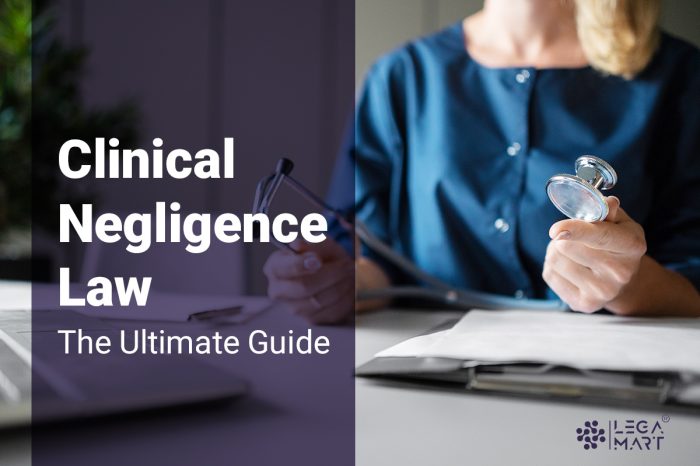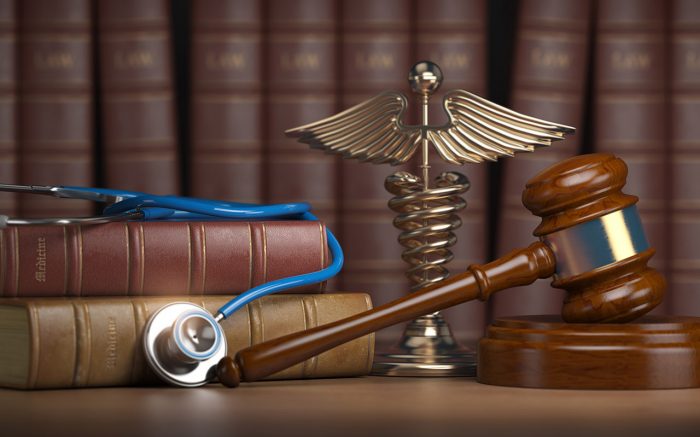Other Areas
Medical
Medical law encompasses the legal rights and obligations of medical professionals and their patients. It covers various areas, including confidentiality, negligence and medical malpractice, and criminal law and ethics.
-
Medical Malpractice
-
Informed Consent
-
Privacy and Confidentiality
Medical Malpractice
Medical malpractice is a key focus of medical law and relates to the liability of medical professionals for negligence in the diagnosis or treatment of a patient, leading to injury or death. However, other torts such as defamation and battery can also arise in medical law. It is essential for medical professionals to seek the advice of an attorney to limit their exposure to potential liability.
There have been many legal challenges and dispute cases related to medical malpractice. Here are a few examples:
Failure to Diagnose: A healthcare provider may be sued for medical malpractice if they fail to diagnose a patient’s illness or misdiagnose their condition, resulting in harm or injury.
Surgical Errors: Surgeons may face lawsuits if they make errors during surgery that result in harm or injury to the patient, such as operating on the wrong body part or leaving surgical instruments inside the patient.
Medication Errors: Healthcare providers may be sued for medical malpractice if they prescribe the wrong medication or dosage, fail to consider potential drug interactions, or administer medication incorrectly.
Birth Injuries: Medical malpractice lawsuits may arise from injuries sustained during childbirth, such as cerebral palsy or other neurological disorders, that are caused by the negligence of the healthcare provider.
Anesthesia Errors: Anesthesiologists may be sued for medical malpractice if they administer too much or too little anesthesia, fail to monitor the patient properly during surgery, or fail to manage the patient’s pain effectively.
In all of these cases, the plaintiff must prove that the healthcare provider failed to meet the appropriate standard of care, and that this failure resulted in harm or injury to the patient. These cases can be complex and challenging, often requiring expert testimony and extensive documentation of the patient’s medical history and treatment.
Informed Consent
There have been several legal challenges and dispute cases related to informed consent in medical law. Some examples are:
Lack of Informed Consent: A healthcare provider may face legal action if they perform a medical procedure on a patient without obtaining their consent. This can happen if the provider fails to adequately inform the patient about the risks and benefits of the procedure, or if the patient is not in a state to give informed consent.
Invalid or Coerced Consent: A healthcare provider may be sued for medical malpractice if they obtain consent for a medical procedure that is invalid or coerced. For example, if a patient is pressured into giving consent or is not competent to do so, the consent may not be considered valid.
Failure to Disclose Risks: Healthcare providers have an obligation to inform patients about the risks and benefits of a medical procedure, as well as alternative treatment options. If a provider fails to disclose all relevant risks associated with a procedure, they may be sued for medical malpractice.
Improper Documentation: Healthcare providers must document the informed consent process thoroughly, including discussions with the patient, any questions asked by the patient, and any information provided. Failure to do so can lead to legal action.
Emergency Situations: In emergency situations, healthcare providers may not be able to obtain informed consent from a patient before performing a medical procedure. In these cases, providers must act quickly to save a patient’s life, but may still face legal action if they did not act in accordance with standard medical practice.
Criminal law and ethics have become increasingly important in medical law. Issues such as the role of medical professionals in the trafficking of controlled substances, euthanasia of terminally ill patients, and sexual assault against anesthetized patients have raised concerns from both a criminal and ethical standpoint.
In all of these cases, the plaintiff must prove that the healthcare provider failed to meet the appropriate standard of care when obtaining informed consent, and that the failure resulted in harm or injury to the patient. These cases can be complex and challenging, often requiring expert testimony and extensive documentation of the informed consent process.
Privacy and Confidentiality
Confidentiality is a crucial aspect of medical law, with doctors and mental health professionals being bound by confidentiality agreements with their patients. This tradition has been further enforced by the Health Insurance Portability and Accountability Act (HIPAA), which sets legal safeguards to protect patient information and confidentiality. Violation of the HIPAA can result in significant legal consequences.There have been several legal challenges and dispute cases related to privacy and confidentiality in medical law. Some examples are:
Breach of Confidentiality: Healthcare providers may face legal action if they disclose a patient’s medical information without the patient’s consent. This can happen if the provider discloses confidential information to unauthorized individuals or entities.
Failure to Secure Medical Records: Healthcare providers must take appropriate measures to ensure the security of their patients’ medical records, such as using password-protected electronic systems or physically securing paper records. If a provider fails to secure medical records properly, they may be sued for medical malpractice.
Improper Disclosure of Test Results: Healthcare providers must inform patients of their test results in a timely and appropriate manner. If a provider fails to do so, or discloses test results to unauthorized individuals, they may be sued for medical malpractice.
Cybersecurity Breaches: With the increasing use of electronic health records, healthcare providers face an increased risk of cybersecurity breaches. If a provider fails to take adequate precautions to prevent breaches or does not respond appropriately to a breach, they may face legal action.
Unauthorized Access: Healthcare providers may be sued for medical malpractice if they access a patient’s medical records without a legitimate reason or authorization. This can happen if a provider accesses a patient’s records out of curiosity or personal interest.
In all of these cases, the plaintiff must prove that the healthcare provider failed to meet the appropriate standard of care when protecting the privacy and confidentiality of a patient’s medical information, and that this failure resulted in harm or injury to the patient. These cases can be complex and challenging, often requiring expert testimony and extensive documentation of the breach or disclosure of confidential information.
Find Best Lawyers and Legal help in
Latest Articles
Legamart Editorial
- April 1, 2020
Tell us more about your problem.
Please give a brief description about what it is you need to talk to our lawyers about ?
Frequently Asked Questions
What legal issues arise in medical malpractice cases, and how are they litigated?
Medical malpractice cases can involve a wide range of legal issues, but generally center around allegations that a healthcare provider (such as a doctor, nurse, or hospital) failed to provide the appropriate standard of care, resulting in harm to the patient.
To successfully litigate a medical malpractice case, several elements must be proven by the plaintiff (the injured party):
Duty: The healthcare provider had a duty of care to the patient, meaning they were responsible for providing appropriate medical treatment.
Breach: The healthcare provider breached their duty of care by failing to provide treatment that meets the standard of care for their profession.
Causation: The healthcare provider’s breach of duty caused harm to the patient. This can be difficult to establish in medical malpractice cases, as there may be other factors contributing to the patient’s harm.
Damages: The patient suffered damages as a result of the healthcare provider’s actions, such as physical harm, emotional distress, or financial losses.
Litigating a medical malpractice case typically involves extensive investigation and expert testimony. Medical experts are often brought in to testify about the appropriate standard of care and whether the healthcare provider in question deviated from that standard. The defendant (healthcare provider) will also have the opportunity to present their own experts and refute the plaintiff’s claims.
If the case goes to trial, a jury will be tasked with determining whether the plaintiff has met the burden of proof and is entitled to compensation for their injuries. In some cases, the parties may reach a settlement outside of court.
What are the legal requirements for informed consent in medical procedures and treatments?
Informed consent is an important legal concept in the context of medical procedures and treatments. It refers to the process by which a patient is given information about a procedure or treatment so they can make an informed decision about whether to proceed with it. The requirements for obtaining informed consent can vary depending on the jurisdiction and the specific circumstances, but some general principles include:
Disclosure: Healthcare providers must provide patients with information about the nature and purpose of the proposed procedure or treatment, as well as any risks, benefits, and alternatives.
Capacity: Patients must have the capacity to understand the information provided and make a decision based on that information. This means they must be of sound mind and not under the influence of drugs or alcohol.
Voluntariness: Patients must be making the decision voluntarily, without coercion or undue influence from anyone else.
Understanding: Patients must understand the information provided to them, including any technical terms or medical jargon.
Documentation: In some jurisdictions, healthcare providers may be required to document the informed consent process, including the information provided and the patient’s decision.
Failure to obtain informed consent before performing a medical procedure or treatment can lead to legal liability for the healthcare provider. In some cases, patients may sue for damages if they were not fully informed about the risks associated with a procedure or treatment.
It’s important for healthcare providers to take the time to ensure that patients fully understand their options and the potential risks and benefits of any procedure or treatment. This can help to build trust and avoid legal disputes down the line.
What is the role of medical privacy laws in protecting patient information, and what are the consequences for violating those laws?
Medical privacy laws play a critical role in protecting the confidentiality and privacy of patients’ medical information. These laws aim to ensure that sensitive information related to a patient’s health condition, treatment, and medical history remains confidential and is not disclosed without the patient’s consent or a legal justification.
One of the primary laws that govern medical privacy in the United States is the Health Insurance Portability and Accountability Act (HIPAA). HIPAA sets national standards for the privacy and security of protected health information (PHI), which includes any information that can identify a patient, such as their name, address, social security number, and medical records.
HIPAA requires healthcare providers, health plans, and other entities that handle PHI to implement reasonable and appropriate administrative, physical, and technical safeguards to protect the confidentiality, integrity, and availability of this information. The law also grants patients certain rights, such as the right to access and receive copies of their medical records, request corrections to inaccurate or incomplete information, and restrict certain uses and disclosures of their PHI.
Violating medical privacy laws can have serious consequences for healthcare organizations, healthcare providers, and individuals who handle PHI. The consequences can include fines, civil lawsuits, criminal charges, loss of professional licenses, and reputational damage.
Under HIPAA, the penalties for violating the privacy and security rules can range from $100 to $50,000 per violation, depending on the level of negligence and the severity of the breach. In addition, individuals who violate HIPAA can face imprisonment for up to ten years.
Other medical privacy laws, such as state laws and the General Data Protection Regulation (GDPR) in the European Union, also provide strict regulations and penalties for mishandling patient data. Overall, it is crucial for healthcare organizations and providers to understand and comply with these laws to protect the privacy and confidentiality of their patients’ medical information.
How are healthcare providers and facilities regulated by medical licensing boards and government agencies?
Healthcare providers and facilities are regulated by medical licensing boards and government agencies at both the state and federal levels. These organizations are responsible for ensuring that healthcare providers and facilities meet certain standards of quality and safety.
Medical licensing boards are typically responsible for issuing licenses to healthcare professionals, such as doctors, nurses, and pharmacists. In order to obtain a license, healthcare professionals must meet specific education, training, and testing requirements. Licensing boards may also investigate complaints about healthcare professionals and take disciplinary action if necessary, such as revoking or suspending a license.
Government agencies, such as the Centers for Medicare and Medicaid Services (CMS) and the Food and Drug Administration (FDA), regulate healthcare facilities and services in a variety of ways. For example:
Accreditation: The CMS oversees the accreditation process for hospitals and other healthcare facilities, ensuring that they meet certain standards for quality and safety.
Inspections: Government agencies may conduct inspections of healthcare facilities to ensure compliance with regulations related to things like infection control, patient safety, and record-keeping.
Regulation of drugs and medical devices: The FDA regulates the approval and use of drugs and medical devices, ensuring that they are safe and effective for patients.
Enforcement of laws and regulations: Government agencies may also investigate complaints about healthcare providers and facilities and take enforcement action when appropriate, such as imposing fines or revoking licenses.
Overall, medical licensing boards and government agencies play important roles in regulating the healthcare industry, helping to protect patients and ensure that healthcare providers and facilities are providing high-quality care.









